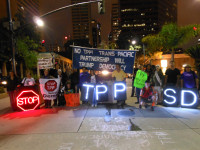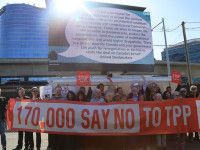Critics of trade agreements such as the TPP and the Canada-EU Trade Agreement has emphasized that a key concern is that deals will lead to increased costs for pharmaceutical drugs. At a recent Standing Committee on Health hearing on the development of a national pharmacare program, officials with Health Canada confirmed that they expect prices to increase but remain unsure about how much (hat tip: Blacklock’s Reporter). The exchange came from questions by NDP MP Don Davies:
Mr. Davies: Canada has just signed two trade deals, CETA and the TPP, which have new intellectual property provisions. All the literature and opinions I’ve read indicate that this will delay the introduction of generics to market for some time. I’m seeing estimates of two years as about what it’s going to take. Ms. Hoffman, has the department done some analysis on the likely impact of TPP and CETA, and is it true that those trade deals will likely increase the prices that Canadians pay for pharmaceuticals and add a little bit of mud to that already dirty picture?











